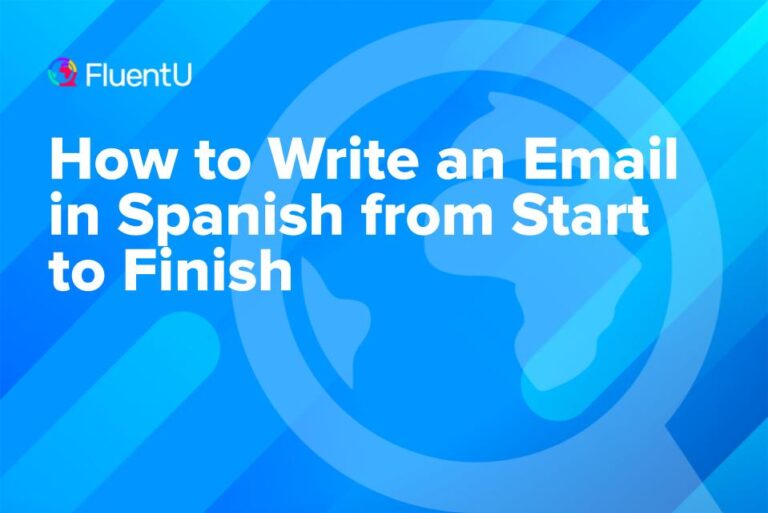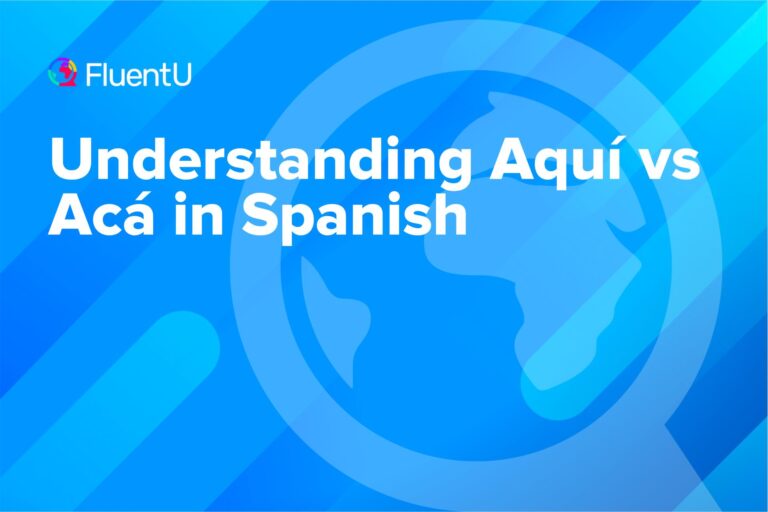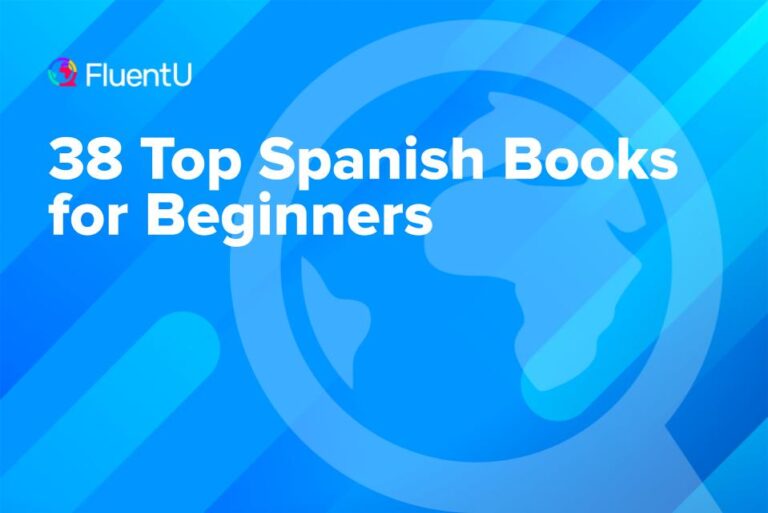Long Spanish Sentences for Advanced Learners

Tired of having the same old basic “getting to know you” chats? If you’re already able to comfortably chat away about where you’re from, what you do and how long you’ve been learning Spanish, it’s time to spice it up with more advanced, long Spanish sentences.
So, skip over “¿de dónde eres?” and follow these tips to pave your way toward amazingly advanced Spanish conversation.
Download: This blog post is available as a convenient and portable PDF that you can take anywhere. Click here to get a copy. (Download)
Long Spanish Sentences Using the Conditional Tense
Conditionals may be in the realm of Spanish grammar, but brushing up on them opens up thousands of conversation opportunities.
Remember when you learned the past tense and were suddenly able to discuss a whole new dimension of things?
Well, getting to grips with conditionals and learning to use them in conversation is similar.
You’ve likely already seen them in many long Spanish sentences describing imaginary situations.
Adding “ifs” into your conversation allows you to talk about hypotheticals, which is incredibly useful for having a more in-depth conversation.
Perhaps you don’t like your current job, and if you had just a bit more experience (si tuvieras un poco más de experiencia), you would change it (lo cambiarías).
One of the best ways to learn Spanish conditionals, terms and expressions is by immersing yourself in native media.
There are many different ways to consume native media, from Spanish TV shows on Netflix to language learning programs like FluentU.
FluentU takes authentic videos—like music videos, movie trailers, news and inspiring talks—and turns them into personalized language learning lessons.
You can try FluentU for free for 2 weeks. Check out the website or download the iOS app or Android app.
P.S. Click here to take advantage of our current sale! (Expires at the end of this month)

In the meantime, here are a few fun and imaginative conditional questions to start using in your Spanish conversations:
Si pudieras ser una persona famosa por un día, ¿a quién elegirías?
(If you could be a famous person for one day, who would you choose to be?)
Si tuvieras un millón de dólares, ¿qué harías?
(If you had a million dollars, what would you do?)
Si pudieras viajar a cualquier lugar en el mundo, ¿a dónde irías?
(If you could travel anywhere in the world, where would you go?)
Si fueras presidente, ¿qué cambiarías?
(If you were the president, what would you change?)
Answers to these questions using the conditional tense would look like:
Si pudiera ser una persona famoso por un día, elegiría a Jennifer Lopez.
(If I could be a famous person for one day, I would choose Jennifer Lopez.)
Si tuviera un millón de dólares, compraría una casa grande.
(If I had one million dollars, I would buy a big house.)
Si pudiera viajar a cualquier lugar en el mundo, iría a España.
(If I could travel anywhere in the world, I would choose Spain.)
Si fuera presidente, cambiaría la sistema de educación.
(If I were president, I would change the education system.)
Note that you can also switch the order of these sentences where the conditional phrase comes before the imperfect subjunctive. For example:
Compraría una casa grande si tuviera un millón de dólares.
(I would buy a big house if I had a million dollars.)
Topics for Advanced Spanish Conversation
It’s a good idea to have several topics up your sleeve in case of any awkward gaps.
Or for those moments when all your Spanish suddenly flies out of your head and you’re left tongue-tied.
Try memorizing a couple of expressions and questions you find interesting, and you should be able to talk your way out of any sticky situation.
Music Terms, Expressions and Questions

Music is something almost everyone has an opinion on. And it can tell you a lot about your conversation partner.
Useful vocabulary terms about music include:
el disco entero — the whole album
el recital — the gig
el estribillo — the chorus
la estrofa — the verse
pegajoso — catchy
el éxito — the hit
grandes éxitos — greatest hits
You could say:
El estribillo es muy pegajoso pero la estrofa es medio aburrida. Igual, definitivamente es el éxito del verano.
(The chorus is really catchy but the verse is a bit boring. Anyway, it’s definitely the hit of the summer.)
Useful questions about music you might like to ask are:
Si pudieras formar un supergrupo, ¿quién formaría parte de él?
(If you could form a supergroup, who would be in it?)
¿Cuál es el mejor recital al que has ido?
(What’s the best gig you’ve ever been to?)
¿Cuál fue el primer disco que compraste?
(What was the first album you ever bought?)
¿Tocas un instrumento?
(Do you play a musical instrument?)
¿Qué instrumento te gustaría aprender?
(What instrument would you like to learn to play?)
Now, take a look at some possible answers:
Si pudiera formar un supergrupo, elegiría a mi prima, a mi hermana y a mi mejor amiga.
(If I could form a super group, I’d choose my cousin, my sister and my best friend.)
El mejor recital al que he ido fue el de mi banda favorita.
(The best recital/gig I’ve been to was [that of] my favorite band.)
No toco ni un instrumento.
(I don’t play a single instrument.)
Me gustaría aprender a tocar el piano.
(I would like to learn to play the piano.)
Travel Terms, Expressions and Questions
Travel is another safe area that usually gets tongues wagging. A conversation about travel can also naturally lead to talking about local customs, celebrations and food.
Useful vocabulary terms about travel:
viajar te abre la mente — traveling opens your mind
un lugar inspirador — an inspirational place
hacer dedo — to hitchhike
ir de mochilero — to go backpacking
un lugar de lujo — a luxury place
Useful questions about travel:
¿Cuál es el lugar más hermoso/interesante que has visitado?
(What’s the most beautiful/interesting place you’ve ever been to?)
¿Cuál es la mejor/peor experiencia que has tenido al viajar?
(What’s the worst/best travel experience you’ve ever had while traveling?)
¿Preferirías pasar mucho tiempo en un lugar o poco tiempo en muchos lugares?
(Would you rather spend a long time in one place, or spend a little time in lots of places?)
¿A qué lugar de tu país me recomendarías ir?
(Which part of your country would you recommend I go to?)
Here are some potential answers:
El lugar más hermoso que he visitado es Puerto Vallarta, México.
(The most beautiful place I have visited is Puerto Vallarta, Mexico.)
Una vez tuve que correr casi dos millas por el aeropuerto porque el avión anterior llegó tarde. Esa es la peor experiencia que he tenido al viajar.
(One time, I had to run almost two miles through the airport because the previous plane was late. That was the worst experience I had ever had while traveling.)
Yo preferiría pasar mucho tiempo en un lugar. Por ejemplo, me encantaría vivir en Colombia por un mes o más.
(I would prefer to spend a lot of time in one place. For example, I would love to live in Colombia for a month or more.)
Te recomiendo ir a Nueva York, porque es el lugar más turístico de todo el país.
(I recommend you go to New York because it is the most touristy place in the whole country.)
Entertainment Terms, Expressions and Questions
If all else fails, conversation revolving around TV, film, theater and books could be a good way to engage your partner.
Useful vocabulary terms about entertainment:
el elenco — cast
la banda sonora — soundtrack
la trama — the plot
el/la protagonista — the main character
For example:
No solo me gusta la trama de esta película, sino que también me encanta la banda sonora y el elenco es muy talentoso.
(I don’t just like the plot of this film, but I also love the soundtrack and the cast is very talented.)
Useful questions about entertainment:
¿Qué película te gustaba mucho cuando eras niño/niña?
(What film did you love as a kid?)
¿Cuál es tu programa preferido en la tele actualmente?
(What’s your favorite show on TV at the moment?)
¿Preferirías ser (elige un personaje de ficción) o (elige un personaje de ficción)?
(Would you rather be [insert fictional character] or [insert fictional character]?)
Si fueras (elige un personaje ficticio) ¿qué hubieras hecho cuando (elige una situación ficticia)?
(If you were [insert fictional character], what would you have done when [insert fictional situation]?)
Here are some answers:
Me gustaba mucho la película “Cenicienta” cuando era niña.
(I really liked the movie “Cinderella” when I was a child.)
Últimamente, he estado disfrutando de ver muchas telenovelas de México.
(Recently, I’ve been enjoying watching lots of telenovelas from Mexico.)
Preferiría ser Superman que Batman.
(I’d rather be Superman than Batman.)
Si yo fuera él, haría lo mismo.
(If I were him, I’d do the same.)
Polite Ways to Agree and Disagree in Advanced Spanish Conversation
I’m a firm believer that the best conversation involves some sort of debate or disagreement.
If you agree with your conversation partner all the time, on everything, then things can get a little dull.
Saying that, when you do disagree with someone, be sure to choose your words carefully or you could end up offending them.
To help things along, here’s a list of how to agree, disagree and partially agree in Spanish. And when you really get stuck, you’ll also get some expressions to say you don’t know.
Agreeing politely
¡Totalmente! — Totally!
Estoy (completamente/totalmente) de acuerdo — I (completely/totally) agree
Estoy contigo — I’m with you on that
Por supuesto — Of course!
Tienes razón — You’re right
Disagreeing politely
No estoy de acuerdo — I don’t agree with you
No lo veo (tan) así — I don’t (really) see it like that
No creo — I don’t think so
Saying you’re unsure or showing partial agreement
Estoy de acuerdo hasta cierto punto — I agree with you up to a point
Tal vez, pero… — Maybe, but…
No estoy muy seguro/segura — I’m not really sure
Nunca lo había pensado — I’ve never thought about it
No tengo la menor idea — I have no idea
Congratulations—you’ve got what you need for some seriously advanced conversation!
Listen to native speakers using authentic Spanish resources like podcasts and TV shows, get a conversation partner and put everything into practice.
Download: This blog post is available as a convenient and portable PDF that you can take anywhere. Click here to get a copy. (Download)
And One More Thing…
If you've made it this far that means you probably enjoy learning Spanish with engaging material and will then love FluentU.
Other sites use scripted content. FluentU uses a natural approach that helps you ease into the Spanish language and culture over time. You’ll learn Spanish as it’s actually spoken by real people.
FluentU has a wide variety of videos, as you can see here:

FluentU brings native videos within reach with interactive transcripts. You can tap on any word to look it up instantly. Every definition has examples that have been written to help you understand how the word is used. If you see an interesting word you don’t know, you can add it to a vocab list.

Review a complete interactive transcript under the Dialogue tab, and find words and phrases listed under Vocab.

Learn all the vocabulary in any video with FluentU’s robust learning engine. Swipe left or right to see more examples of the word you’re on.

The best part is that FluentU keeps track of the vocabulary that you’re learning, and gives you extra practice with difficult words. It'll even remind you when it’s time to review what you’ve learned. Every learner has a truly personalized experience, even if they’re learning with the same video.
Start using the FluentU website on your computer or tablet or, better yet, download the FluentU app from the iTunes or Google Play store. Click here to take advantage of our current sale! (Expires at the end of this month.)









